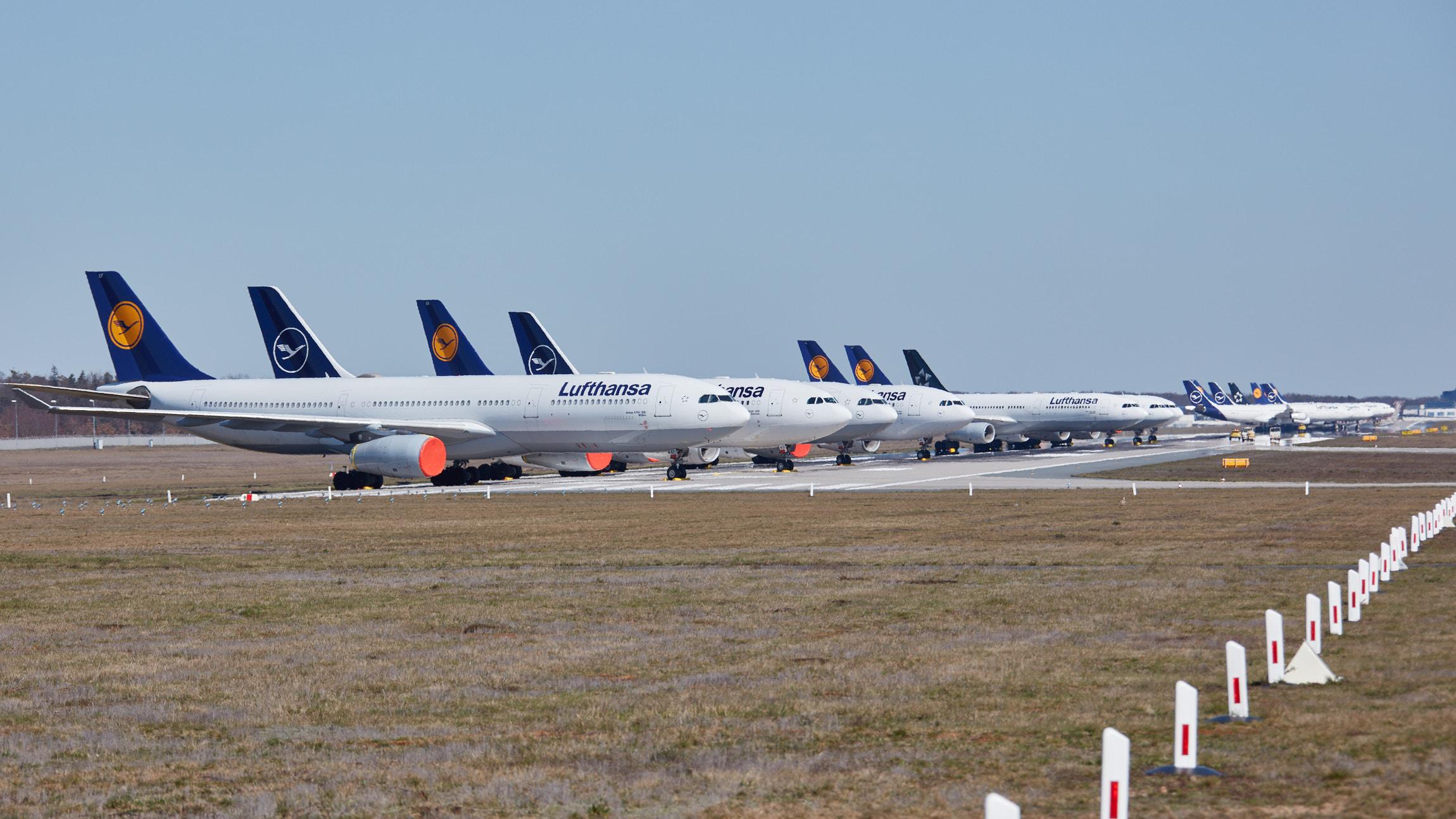
FRANKFURT—The German government approved a €9 billion ($9.8 billion) rescue package for Lufthansa May 25, keeping the airline out of insolvency while returning as its largest shareholder. The company’s executive board supported the deal while the supervisory board and a general shareholder meeting have yet to give the green light.
The government’s economic stabilization fund WSF will buy a 20% stake in the airline. The fund will invest €300 million paying the nominal value of €2.56 per share. It leaves open the option of buying an additional 5% plus one share to block a potential hostile takeover. Lufthansa traded at €8.60 as of May 25. The fund will also buy a so-called silent participation in the company worth €5.7 billion. In addition, state-owned bank KfW is taking the lead among a consortium of banks offering a €3 billion loan facility repayable within three years.
The package is being made available with tight financial conditions and with strings attached.
Interest payments of 4% are attached to the silent participation in 2020 and 2021, rising in later years up to 9.5% by 2027 if the money has not been repaid by then. The silent participation can be converted into an additional stake of up to 10% (5% each in 2024 and 2026) if Lufthansa is unable to pay the interest, giving the government an even larger role in the airline over time if financial targets are not met.
The government pledges to exit Lufthansa as a shareholder by the end of 2023 if the entire silent participation is repaid by then. Given that the KfW loan is also due in three years, the only way for Lufthansa to meet that condition is for credit markets to reopen on a large scale and provide financing at acceptable interest levels.
The government will only sell at a share price of €2.56 or higher with an additional 12% annual interest.
The Lufthansa board will propose two independent experts as new members which have to be approved by the WSF. The fund confirmed that it will abstain from using its voting rights at shareholder meetings except to avoid hostile takeovers.
Under the agreement, Lufthansa cannot pay dividends to shareholders for the foreseeable future. Members of the executive board cannot receive variable pay or bonuses, and their basic pay is cut by 20%.
The government does not intend to interfere in daily management of the airline, officials said. However, the airline had to make certain commitments. Most importantly, Lufthansa had to confirm its “ecological responsibility” by continuing to renew its fleet. Fuel burn per ASK is to continuously decline, according to the agreement. Lufthansa also accepted that it has to expand its cooperation projects on biofuels, specifically power-to-liquid technology.
At an earlier stage of negotiations, the government had considered requiring the airline to take delivery of all Airbus aircraft currently on firm order, but that idea was later dropped. There is also no provision in the term sheet for Lufthansa to drop short-haul or domestic feeder flights, given the airline’s dependence on connecting traffic through its Frankfurt and Munich hubs.
The deal came at the last minute for the airline, which has seen almost all of its aircraft grounded by COVID-19. Lufthansa was estimated to have enough cash for up to two additional months given its current monthly burn rate of around €800 million, and €1.8 billion in potential ticket refunds for cancelled flights that have to be paid if passengers do not reschedule their trips.
Approval by the board of directors is all but guaranteed given the lack of other options and is expected as soon as May 26. But the airline also needs approval by an extraordinary meeting of shareholders that can be called for the end of June at the earliest, and by the European Commission. According to industry sources, negotiations have been occurring between government and the EC. European regulators are said to have asked for slot remedies in Frankfurt and Munich, a concession the government and the airline have sought to avoid.
Lufthansa plans to slowly resume more flying. Coming from less than 1% of its pre-crisis capacity, the carrier is adding back flights equivalent to around 14%. As it restarts, the carrier is aiming for a broad, but low-frequency network that includes a large share of leisure destinations based on the assumption that private travel will return first.
Company sources say the restart is expected to be unprofitable at first and the airline is prepared to drop routes that prove to be unviable for too long.
Now that the survival for the short- and medium-term is all but certain, management’s next task is to address the airline’s cost structure. Pilots have already offered cost reductions but are demanding job security in return. CEO Carsten Spohr said earlier that even after traffic has rebounded to more normal levels the airline will have 10,000 employees too many. Part-time arrangements may be used to avoid mass layoffs.
“The structure of the bailout gives Lufthansa a strong mandate for restructuring and raising its free cash-flow profile,” said Bernstein Research analyst Daniel Roeska. “Management should use this to fundamentally reset its cost base.”





